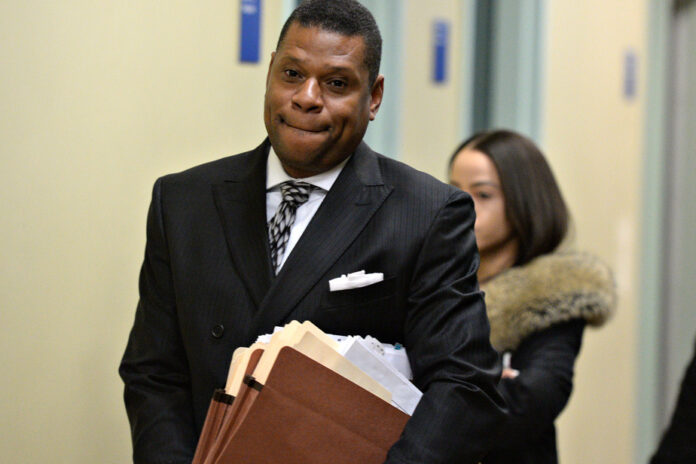The Federal Crown will take exceptional measures this Tuesday morning to bring forward the trial for terrorism of a resident of Lévis accused of having fomented a coup in Haiti, La Presse was able to confirm. The case was already bogged down in legal delays, just as Canada is under pressure to help restore order in the pearl of the Antilles.
Gérald Nicolas’ case returns to a judge on Tuesday, and according to the Court of Quebec notice of entry, Crown prosecutors will file a “privileged indictment”. This exceptional measure allows them to bypass the preliminary investigation requested by the accused in order to go directly to a jury trial. The procedure, which had to be approved at the highest levels of the Public Prosecution Service of Canada, should cut several months from the judicial process.
“It’s not common, it’s an exceptional procedure”, observes Me Tiago Murias, lawyer for the accused.
Gérald Nicolas was charged last November with leaving Canada to facilitate terrorist activity, facilitating terrorist activity and providing property for terrorist purposes. The indictment specifies that the facts took place in Montreal, Quebec, Haiti and the Dominican Republic.
“The investigation shows that he traveled to Haiti and other countries to recruit, fundraise and acquire weapons,” said Corporal Charles Poirier, spokesperson for the Royal Mounted Police. of Canada (RCMP). The goal, according to the suit, was to overthrow the government of President Jovenel Moïse, who was in office from 2017 until his assassination in 2021 by an armed group unrelated to Mr. Nicolas’ plan.
The investigators nevertheless took the matter very seriously and claim to have detected “a threat of violence and/or a preparation for an armed confrontation”.
Mr. Nicolas had requested a four-day preliminary inquiry so that he could assess the evidence and interview some of the witnesses in his case, including the police officers involved in the investigation. At the end of the four days of hearing, a judge would have had to decide whether the evidence justified him having a trial for terrorism, a serious and rare offense in Canada.
Due to the backlog in the courts, however, it would have been impossible to hold such an exercise before next fall, at the earliest. “There were no dates available this summer, so it was postponed to the fall,” confirms Me Murias.
One of the Crown prosecutors in charge of the case, Me Philippe Legault, did not want to say whether the legal delays had justified the Crown’s choice to short-circuit the preliminary investigation in Mr. Nicolas’ file.
“The Director of Public Prosecutions made her decision on March 1, 2023. The rationale behind this decision is Crown privilege and there is no comment on the rationale behind it,” he said.
On the defense side, Tiago Murias acknowledges that Crown intervention will speed things up, but he believes federal prosecutors also have other reasons for wanting to avoid a preliminary inquiry. “In the current context, I believe that the less attention this file attracts, the better off they are”, he dropped, without wanting to say more.
Canada is currently under pressure to contribute as several countries seek a solution to the insecurity and political instability that continue to paralyze Haiti. Haitian government officials and United Nations representatives have called for the creation of an international peacekeeping force that could help local police in their fight against the armed gangs that control large parts of the territory.
A White House adviser said in January that Canada might be interested in leading the force, but the Trudeau government has never stepped forward in that regard. The Chief of the Defense Staff of Canada, General Wayne Eyre, even declared last week that the Armed Forces do not have the capacity to carry out such a mission in Haiti, because they are already mobilized for the support of Ukraine and NATO.
On Monday, the Miami Herald reported that senior US officials are banking on Joe Biden’s upcoming visit to Ottawa to convince Canada to lead an international mission and put an end to “months of debate” on the subject.
Prime Minister Justin Trudeau says the United States and Europe must do “much more” to sanction Haitian elites who have a role to play in Haiti’s insecurity crisis. Mr. Trudeau recalled that Ottawa has sanctioned 17 people, including several former politicians, since they are considered accomplices of the armed gangs who sow terror in Haiti. In November, Canada began sanctioning people under its Special Economic Measures Act. This had the effect of freezing the assets of these people in Canada, as well as preventing them from making any stay in the country.


















